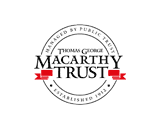Philosophy / Aims
History of KWC:
The Kapiti Women’s Health Collective (Inc) (now operating as the Kapiti Women’s Centre) was formed in 1988 by a group of women who were inspired and motivated by a presentation by members of the Boston Women’s Health Collective. An establishment committee was formed to explore the viability of a Women’s Centre for the Kapiti Coast and from these small beginnings the Kapiti Women’s Centre was created. The collective was incorporated on the 31st July 1989.
On August 9th 1991, the Kapiti Women’s Health Collective moved to new premises designed specifically for them. The building was provided by Housing New Zealand at a nominal rental, on land provided by the Kapiti Coast District Council. Dame Cath Tizard officially opened the new buildings on a glorious day of rejoicing in August 1991.
With Housing Corporation as the landlord, it was necessary for the collective to broaden its scope of operations, otherwise it would have fallen within the auspices of the Department of Health. Whilst retaining the title of the Kapiti Women’s Health Collective Inc for legal purposes, the collective began operating under the name of the Kapiti Women’s Centre and continues to do so today.
On the 29th July 2012 the collective celebrated the extension and refurbishment of the Centre and are now operating from a wonderful environment which allows us to provide services and support more effectively.
KWC today:
The Centre is open five days a week, from 9.00am to 3.00pm Monday to Friday. Our Centre Manager is responsible for the day to day operation of the Centre supported by 2 Administrators one who works Monday, Wednesday to Friday, and a Course Co-ordinator who works Monday to Wednesday. A wide range of services are offered at KWC and are provided by a team of dedicated and caring volunteer Centre Workers who take part in a comprehensive training programme to prepare them for this role. The Centre also provides the Women’s Refuge service in Kapiti and along with that there is a Refuge Co-ordinator and 3 advocates, 1 is full time and 2 are part time. The Women’s Refuge also has a dedicated team of volunteers that help with the crisis line and the day to day running of the service here. The counselling service is provided by a group of committed, compassionate women who volunteer their time to this service. Other members of the collective include the crèche workers, HUB who oversee the direction of the Centre and a myriad of supporters who care about women in our community and wish to contribute their skills to make a difference to the women on the Kapiti Coast. As part of their commitment to being a member of the collective at KWC, women take part in on-going training, regular meetings, courses and hui. Membership of the collective is open to all women of the Kapiti community.
Philosophy:
- We believe women have the right to equal status and opportunity in all areas of their lives
- We believe women’s health encompasses emotional, physical and spiritual well-being
- We believe women have the right to any information which empowers them to recognise and exercise choice
- We believe that it is not possible to view women’s health in isolation from social conditions
- We believe women are health consumer with power and rights
- We believe women are responsible for lobbying at all levels for favourable changes in attitude towards women and their health needs.
Aims and Objectives:
- To provide an easily accessible information centre open to all women in the Kapiti community, covering all aspects of women’s health and well-being and to do so in a respectful and appropriate manner.
- To empower, support and listen to the needs of women and their children.
- To provide a safe meeting place for women and children.
- To provide learning opportunities through information, workshops, seminars, hui, courses, companionship, counselling, individual and group support.
- To raise awareness of social and political issues affecting women in the community and where appropriate support, empower and/or advocate for change.
- To establish and maintain community links for mutual support and the sharing of resources.
- To acknowledge the aspiration of tangata whenua that are contained and articulated within the articles of te Tiriti o Waitangi.













